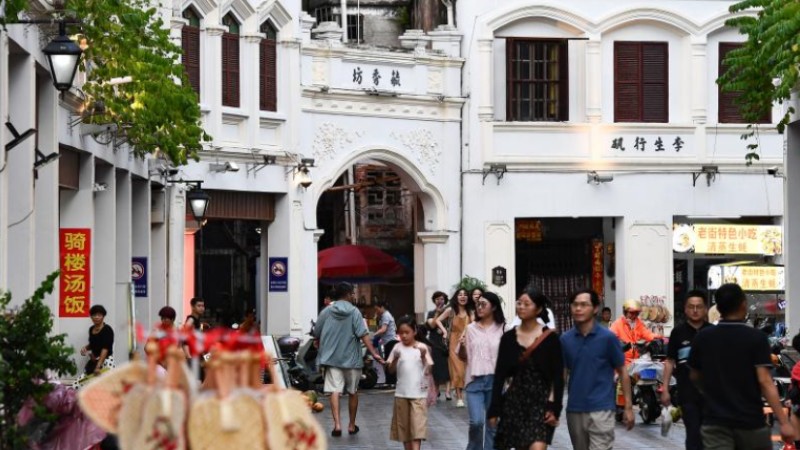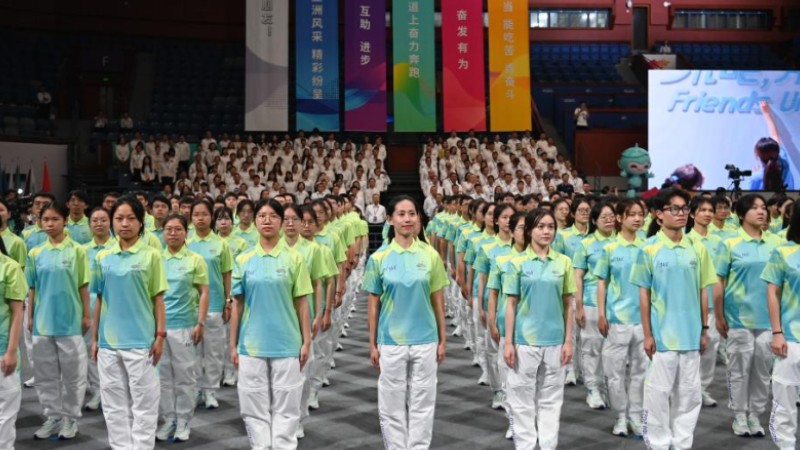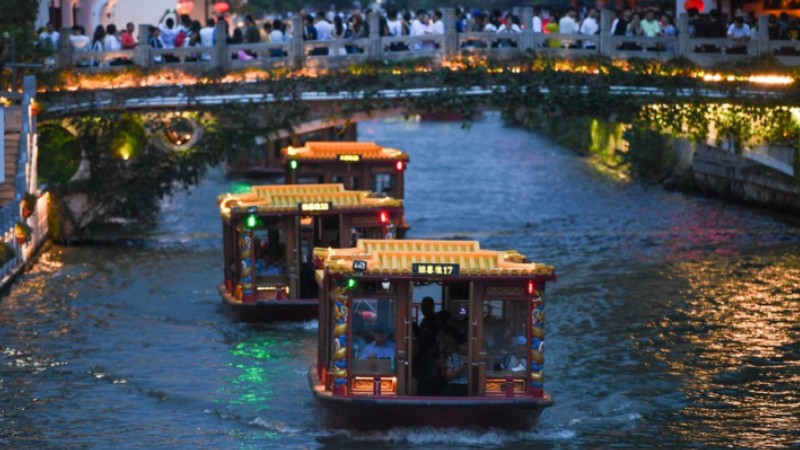Dutch lighting company backs Chinese market in green transition
NANCHANG, Aug. 27 (Xinhua) -- At the production base of a Dutch company in east China's Jiangxi Province, green efforts can be seen everywhere. Roads are lined with solar street lights, production waste is recycled, and carbon footprints along the industrial process path are tracked.
After years of low-carbon investments in China, the LED lighting production base in Ruichang City, put into operation recently, marks the Dutch multinational lighting company Signify's latest involvement in China's green transition.
Eric Rondolat, CEO of Signify, said that China's "dual carbon goals" have pointed the way for the transforming lighting industry, which is why Signify is willing to invest in China in the long term.
China has announced that it will peak carbon dioxide emissions by 2030 and achieve carbon neutrality by 2060, and Chinese authorities have introduced a raft of measures to boost the use of renewable energy and reduce carbon emissions.
As lighting transformation, compared with energy structure adjustment and the replacement of other infrastructure, is faster and more convenient with wide coverage, the potential of green lighting products should not be underestimated, said Rondolat.
By replacing traditional lights with LEDs, energy consumption can be reduced by about 50 percent, and up to a further 30 percent will be saved if LEDs are combined with smart connected lighting, he added.
With an investment of 2.8 billion yuan (about 384 million U.S. dollars), the plant at the new base covers an area of 200,000 square meters and houses 192 production lines.
After the production lines go into operation at the end of 2023, 80 percent of the output will be exported to the international market. Once the production capacity and standard are reached in 2025, the annual output value of the base is expected to exceed 5 billion yuan.
Signify has already invested in China's green transformation. In Huanggang City in central China's Hubei Province, the smart poles Signify developed helped reduce energy consumption and operating costs, while in Hui Autonomous Prefecture of Linxia in northwest China's Gansu Province, Signify's LED supplementary lighting has raised the output of red roses per square meter from 160-180 to 300 at an international flower port.
Optimistic about the prospects of China's circular economy and low-carbon development, Rondolat said the company will continue to increase investment in China in terms of production capacity, research and development, and talent.
"We have developed very strong connections with partners, suppliers, customers, and also local governments, and it's very important for us to continue to build that strategy over time," he said.
In 2018, Philips Lighting, a Dutch multinational lighting company, officially changed its name to Signify. It now boasts nine manufacturing factories in China.
Photos
Related Stories
- Dutch lighting company increases investment in China
- S China's company applies lighting products to varoius areas
- China urges Netherlands not to abuse export control measures
- Dutch, Chinese representatives sign memorandum of cooperation on China Int'l Import Expo
- Chinese vice president meets Dutch deputy PM
Copyright © 2023 People's Daily Online. All Rights Reserved.









